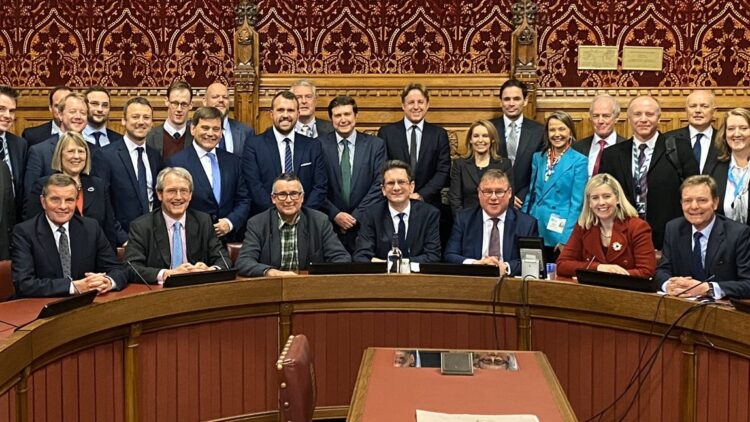By Tony O’Reilly-
The European Research Group (ERG) of hardline Brexiter Conservative MPs has rejected Rishi Sunak’s revised plan for trading arrangements in Northern Ireland, saying it would keep EU law as “supreme”.
Announcing the decision, Mark Francois, the Tory MP who chairs the group, said its study of the Windsor framework also found that the apparent veto for Northern Irish politicians over new EU regulations was “practically useless”.
Speaking to reporters in parliament following an ERG meeting, Francois strongly indicated the group would recommend voting against the plan in the Commons on Wednesday, but said a final decision would be made at another meeting before the debate.
The damning verdict increases the potential size of a Tory rebellion against the plan, and follows the decision on Monday by the Democratic Unionist party to also reject the deal.
A leading DUP MP, Sammy Wilson, said on Tuesday that his party would “continue the fight” against the plan, also indicating that it could continue its boycott of the Northern Ireland assembly at Stormont.
Speaking on BBC’s Good Morning Ulster on Tuesday Wilson, the DUP’s Brexit spokesperson, was asked by Colum Eastwood, the leader of the moderate nationalist SDLP, when the DUP could return to Stormont.
Wilson replied: “Colum, you may be prepared to roll over, to having powers taken away from the people who are elected to Stormont, we’re not.”
The ERG remains influential, if not to the same extent as during the Brexit negotiations under Theresa May, and it is not clear how much its view will influence the vote. It does not publish any statistics about its membership.
The deal was unveiled last month by Sunak after talks with Ursula von der Leyen, the European Commission president. The vote on Wednesday will be on one part of the plan, the so-called Stormont brake veto. It will be decided as a statutory instrument, a piece of secondary legislation, rather than a bill or a formal change to an existing law.
The ERG has produced a 49-page report by two lawyers affiliated with the group, part of what it styles its “star chamber”, published on Tuesday.
Summarising its findings, Francois said they had concluded the Stormont brake was not effective, and that the check-free “green lane” for the bulk of goods moved between Northern Ireland and the rest of the UK would not work as billed.
Francois said: “The star chamber’s principal findings are: that EU law will still be supreme in Northern Ireland; the rights of its people under the 1800 Act of Union are not restored; the green lane is not really a green lane at all; the Stormont brake is practically useless; and the framework itself has no exit, other than through a highly complex legal process.”




